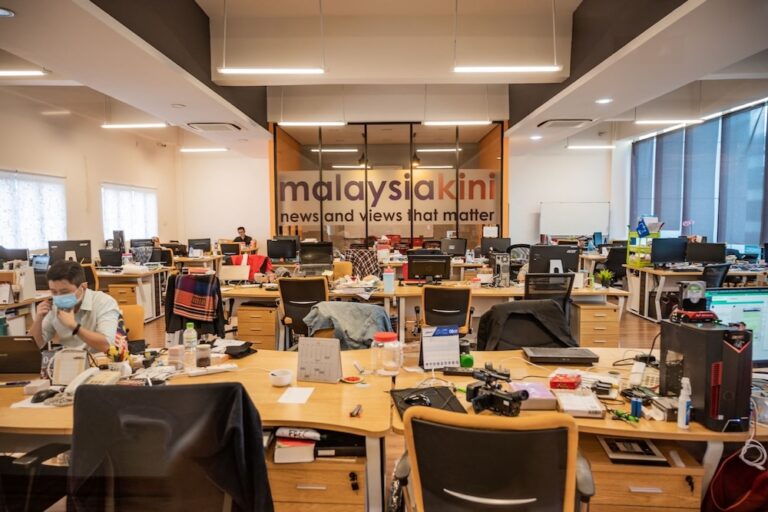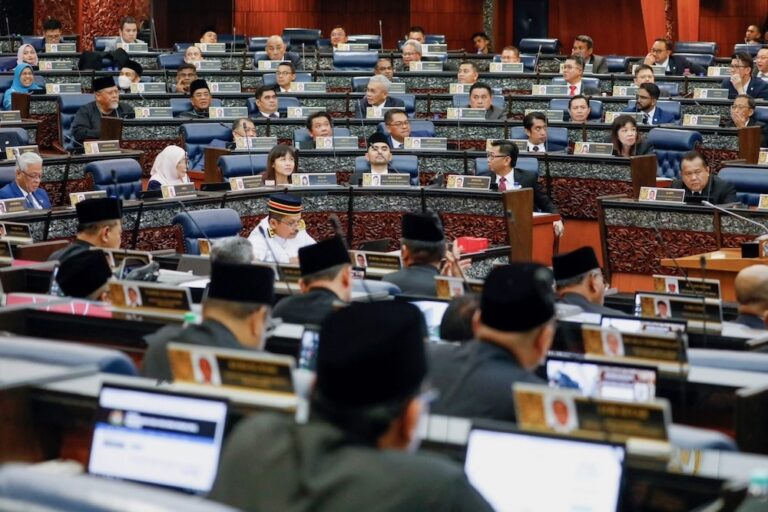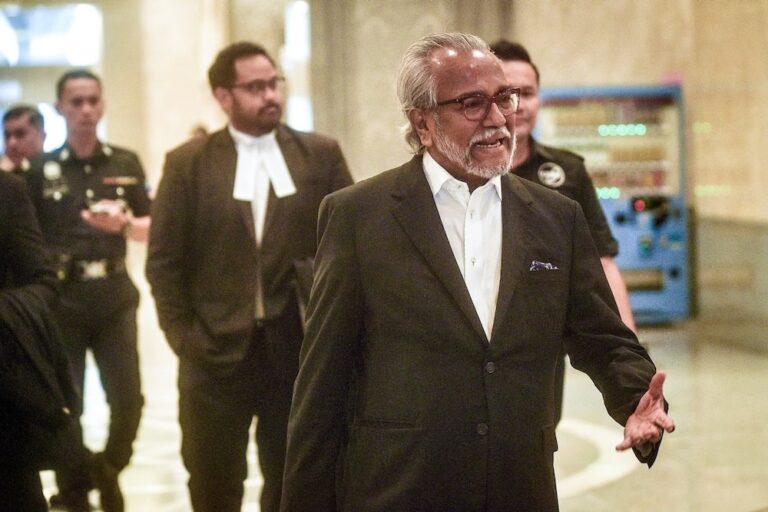The broad definition of "harmful content" risks the removal of lawful expression from the internet and potential government manipulation of content moderation.
This statement was originally published on cijmalaysia.net on 12 December 2024.
The Online Safety Advocacy Group (OSAG) and the undersigned civil society organisations strongly condemn the passage of the Online Safety Bill (OSB). The bill was passed after a division was called, with 77 Members of Parliament (MPs) voting in favour of and 55 against it, and despite the opposition coalition asking for it to be sent to the Parliament Special Select Committee (PSSC) for further review.
We recognise the need to hold online service providers and social media platforms accountable. However, instead of providing transparency and accountability mechanisms, many aspects of the Bill pose significant risks to freedom of expression, especially in the context of the Malaysian Communication and Multimedia Commission’s (MCMC) expansive powers.
1. The absence of an independent oversight body
The Malaysian Communication and Multimedia Commission (MCMC) is not independent in law or practice. Yet, excessive power is granted to control and monitor online content and activities under the OSB.
There is a serious possibility of government or political interference as the MCMC receives directions from the Minister of Communications on exercising their powers, functions and duties, whether of a general character or “otherwise” under Section 7 of the CMA. The recent amendments to the Communications and Multimedia Act (CMA) further expand the Minister of Communication and MCMC’s excessive power.
Sections 35, 74, 80, and 81 of the OSB again expand the Minister and MCMC powers, allowing them to order “authorized officers” to monitor communications and install surveillance devices without proper safeguards. The ability to create subsidiary laws under the OSB removes Parliament’s role in checking and balancing these powers.
2. Broad and vague list of different types of “harmful content”
Some types of “harmful” content regulated by the OSB are enumerated in the First Schedule [Section 4] and include many types of legal but potentially harmful content. Application Service Providers (ASPs), Content Application Service Providers (CASPs), and Network Service Providers (NSPs) must proactively screen for “harmful content,” and the broad definition risks the removal of lawful expression from the internet and potential government manipulation of content moderation to censor opposing or critical views.
While monitoring can identify problematic content, it often results in removals that infringe on user privacy and freedom of expression under Article 10(1)(a) of the Federal Constitution. The broad definitions of harmful content do not align with the principle of legality required by Article 19(3) of the International Covenant on Civil and Political Rights (ICCPR), which demands clarity, legitimacy, and necessity in law.
3. The failure to address the underlying issues within a systems-based approach
The Online Safety Bill lacks a systems-based approach and focuses too much on illegal or “harmful” content, which is too vague. Instead, it should emphasise transparency, accountability, and human rights.
While initial consultations hinted at a systems approach, the OSB mainly targets content moderation, ignoring root issues like platform design and user education. This outsized focus on content can lead to increased surveillance and privacy violations. A better approach would prioritise the governance of online service providers, requiring them to protect human rights and empower users while ensuring transparent algorithms and safety features.
4. Concern over the way the Bill was passed
We are also very concerned about how the Bill passed in Parliament yesterday. Pasir Mas MP, YB Tuan Haji Ahmad Fadhli bin Shaari had moved for the Bill to be referred to a Select Committee under Standing Order 54(2), which states that such motions shall not require notice. This provision is reinforced by Standing Order 26(1)(j), which clearly states that motions to refer a Bill to a Select Committee under Standing Order 54 are an exception to the general notice requirement for motions. However, despite these express provisions, the Speaker chose to invoke his discretionary powers under Standing Orders 99 and 100 to make a ruling requiring that one day’s written notice be given – a ruling that, in our view, is not only questionable in terms of direct contradiction with Standing Orders 54 and(2) and 26(1)(j), but also highly impracticable given that the Bill was only made available the previous day, and required significant time to review.
Recommendations
Legislation regulating online content should prioritise human rights and adhere to the freedom of expression standards outlined in Article 19 of the ICCPR. While Malaysia is not a party to the ICCPR, the principles are grounded in Article 19 of the Universal Declaration of Human Rights (UDHR), as noted by the UN Special Rapporteur in 2018. It is crucial to evaluate the Bill’s alignment with these human rights standards and international best practices to avoid potential overreach and misuse of regulatory power and to promote freedom of expression while effectively addressing online content regulation.
Once more, we urge the Malaysian government to reverse course and uphold freedom of expression. More specifically, we call on the government to:
- As the Bill will now be presented to the Dewan Negara, refer the Bill to a select committee of the Dewan Negara for further review, consultation and improvements to the Bill.
- Establish an independent Online Safety Commission free from government interference as an effective regulatory body and accountability mechanism.
- Ensure that the OSB is brought in line with freedom of expression standards, respecting the principles of legality, legitimacy, necessity and proportionality throughout.
We, the undersigned, stand united to defend freedom of expression, information, internet freedom, privacy, and human rights.
Endorsed by:
Online Safety Advocacy Group (OSAG)
- ARTICLE 19
- Centre for Independent Journalism (CIJ)
- Justice for Sisters (JFS)
- Kemban Kolektif
- Amnesty International Malaysia
- KRYSS Network
- Childline Foundation
- End CSEC Network Malaysia (ECPAT Malaysia)
- CRIB Foundation (Child Rights Innovation & Betterment)
- Women’s Centre for Change (WCC0
- Association of Women Lawyers (AWL)
- Johor Women’s League (JEWEL)
- Sisters in Islam (SIS)
- Sinar Project
- Maha Balakrishnan
- The Talisman Project
- Freedom Film Network
- Suara Rakyat Malaysia (SUARAM)



